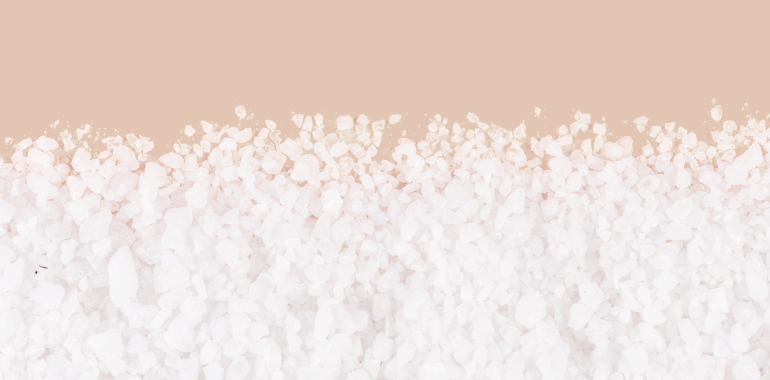Table Of Contents
Intro to Does Salt Break Intermittent Fasting?
If you’re considering a longer fast period, you’ve probably heard varying opinions about whether salt is allowed. Is it okay to ingest sodium during your extended fasting window, or will it break the fast?
To help clear up any confusion and understand what the science says about eating salt while fasting, this post will give an overview of all the facts that need to be considered when making this decision.
From metabolic effects and hunger triggers to electrolyte balance importance – we’ll dive deeper into why fasting with or without salt works differently in each individual and how it affects one’s health.
Does Salt Break Autophagy: Salty or Sweety Influence?
Absolutely! Think of autophagy as the cell’s housekeeping service, tidying up by breaking down and repurposing its bits and pieces. Now, sprinkle in some salt and fasting — not too much, just a pinch.
While we all love a dash of salt on our fries, going overboard might give our cellular cleaning crew a tough time. Excess salt throws a wrench in the autophagy works, potentially dialing back on the cellular TLC. So, for the sake of your cells’ well-being, keep that salt shaker in check!
The Basics: Will Salt Break a Fast?
Salt doesn’t contain calories, so it won’t disrupt the caloric aspect of fasting. Many fasters even add a pinch of salt to their water to help maintain electrolyte balance.
Avoiding “Keto Flu”
A common side effect for those doing a ketogenic fast or transitioning into ketosis is the “keto flu,” characterized by headache, fatigue, and irritability. This happens partly due to the loss of sodium. Supplementing with salt can mitigate these symptoms.
Supporting Nerve and Muscle Function
Sodium is vital for nerve impulse transmission and muscle contractions. A little salt during fasting can help ensure these physiological processes run smoothly.

Does Himalayan Salt Break a Fast?
Pink Himalayan salt, while rich in minerals, doesn’t contain calories. Using it in moderation typically won’t disrupt the caloric aspect of fasting. Some fasters even sprinkle a bit in their water to maintain electrolyte balance during a fast.
Pink Himalayan Salt: More Than Just a Pretty Color
Unlike regular table salt, Pink Himalayan contains up to 84 trace minerals, including calcium, potassium, and magnesium.
It’s typically less refined than table salt, ensuring its minerals remain intact and free from additives.
Many chefs and foodies adore its unique taste and texture, making it a gourmet choice in cooking.
Does Sea Salt Break a Fast: From Oceans and Laboratories
Just like other salts, sea salt doesn’t have calories. Adding a bit to your water during a fast can help with electrolyte balance without breaking the fast in calorie intake.
Does Iodized Salt Break a Fast?
Using iodized salt in moderation shouldn’t break your fast. As always, touching base with a healthcare professional for tailored advice is smart!
Rock Salt and Mineral-Rich Variants: Nature’s Underground Treasure
Rock salt isn’t just about sodium chloride; variants of mineral-rich salt bring a sprinkle of Mother Nature’s diversity to the table!
- Many variants of rock salt, especially those like Pink Himalayan salt, are celebrated for their rich mineral content, including trace amounts of calcium, potassium, and magnesium.
Also, read – Does Stevia Break a Fast? Decoding the Debate
The Salt Spectrum: Choosing the Best Salt for Fasting
The Star Salt While Fasting
When it comes to salts popularly recommended during fasting for their mineral content and potential benefits, Pink Himalayan salt often shines in discussions due to its rich mineral content and unrefined nature.
While fasting, the goal is often to maintain hydration and essential electrolytes, and a pinch of Pink Himalayan salt in water might aid in achieving this balance.
Celtic Salt & Kosher Salt: Ancient Tradition Meets Modern Fasting
1. Celtic salt
Harvested from tidal ponds, this salt retains its moist texture and boasts a host of trace minerals. Eat salt while fasting – It’s an ancient favorite known for its gray hue and nuanced flavor.
2. Kosher salt
This flaky, coarse salt gets its name from its use in the koshering process. It’s renowned for its pure taste and ability to dissolve quickly.
Both salts can be used in modest amounts during fasting to maintain electrolyte balance and enhance hydration.
A Pinch or a Pile? Determining How Much Salt During Fasting
Typically, a pinch in your water or taken directly a few times a day suffices. Remember, too much can lead to excessive sodium intake!
How Much Himalayan Salt While Fasting: Striking the Perfect Balance
Recommended amount: Generally, a pinch or two in water can help maintain electrolyte balance during a fast. Overdoing it may lead to excessive sodium intake.
Tune In! Always pay attention to your body’s signals and adjust accordingly.
The Salt and Water Dance: Does Salt Water Break a Fast?
Salt water doesn’t contain calories. Drinking it won’t induce a metabolic response in terms of caloric intake.
It aids in hydration and replenishing electrolytes during a fast, especially if you’re feeling lightheaded or experiencing muscle cramps.
- While salt water doesn’t break a fast in a caloric sense, excessive intake might stimulate the digestive system, so moderation is key.
Fasting Without Salt Benefits and Some Risks
While fasting without salt simplifies the process and may amplify detoxification, it’s vital to be aware of potential risks and monitor your body’s reactions.
Benefits
- Natural Detox
Fasting without salt might give your body a complete break from external inputs, possibly aiding in detoxification.
- Simplicity
Without adding anything, including salt, your fast remains straightforward, making it easier to track any bodily reactions solely to the act of fasting.
Risks
- Electrolyte Imbalance
Sodium is necessary for maintaining fluid balance. Can salt break a fast? So, without salt during extended fasts, you might risk dehydration or imbalances that lead to symptoms like dizziness or muscle cramps.
- Low Blood Pressure
Salt helps regulate blood pressure. A lack of it might lead to a sudden drop, especially during extended fasting.
Does Table Salt Break a Fast – Final Verdict
Overall, the answer to – does eating salt breaks a fast – is more complex than yes or no.
Sometimes, a pinch of table salt added to food during a fasting period may not affect your body’s insulin levels; however, depending on your physical makeup and reaction to eating table salt, it may still cause hormonal fluctuations related to breaking the fast.
Suppose you are still determining whether adding a pinch of table salt will affect your speed. In that case, it is best to err on the side of caution and avoid using any foods or beverages containing table salt with your fasting regimen.
Now, as always, it is up to you to decide what route works best for your lifestyle and dietary needs!

Does a Pinch of Salt Break a Fast: 3 Quick Insights!
1. Calories and Metabolism
Salt itself doesn’t contain calories and fasting primarily concerns caloric intake. A tiny amount of salt won’t stimulate a metabolic response in the same way calories from carbohydrates, proteins, or fats would.
2. Electrolyte Balance
During extended fasting, maintaining electrolyte balance is crucial. Salt can provide sodium, which helps with hydration and preventing muscle cramps.
3. Autophagy and Hormonal Responses
While salt doesn’t interrupt autophagy or spike insulin, overconsumption could increase blood pressure.
Alex is a health sciences writer with experience in sports performance and rehabilitation settings. His areas of expertise include health and fitness, sports nutrition, and injury prevention. He is passionate about health science education and health/wellness optimization for people of all ages.









